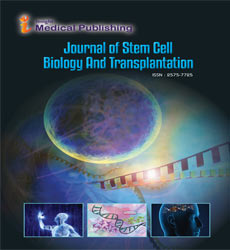ISSN : 2575-7725
Journal of Stem Cell Biology and Transplantation
Challenges of Organ Shortage for Transplantation: Solutions and Opportunities
Abstract
Organ shortage is the greatest challenge facing the field of organ transplantation today. A variety of approaches have been implemented to expand the organ donor pool including live donation, a national effort to expand deceased donor donation, split organ donation, paired donor exchange, national sharing models and greater utilization of expanded criteria donors. Increased public awareness, improved efficiency of the donation process, greater expectations for transplantation, expansion of the living donor pool and the development of standardized donor management protocols have led to unprecedented rates of organ procurement and transplantation. Although live donors and donation after brain death account for the majority of organ donors, in the recent years there has been a growing interest in donors who have severe and irreversible brain injuries but do not meet the criteria for brain death. If the physician and family agree that the patient has no chance of recovery to a meaningful life, life support can be discontinued and the patient can be allowed to progress to circulatory arrest and then still donate organs (donation after circulatory death). Increasing utilization of marginal organs has been advocated to address the organ shortage.
Open Access Journals
- Aquaculture & Veterinary Science
- Chemistry & Chemical Sciences
- Clinical Sciences
- Engineering
- General Science
- Genetics & Molecular Biology
- Health Care & Nursing
- Immunology & Microbiology
- Materials Science
- Mathematics & Physics
- Medical Sciences
- Neurology & Psychiatry
- Oncology & Cancer Science
- Pharmaceutical Sciences
